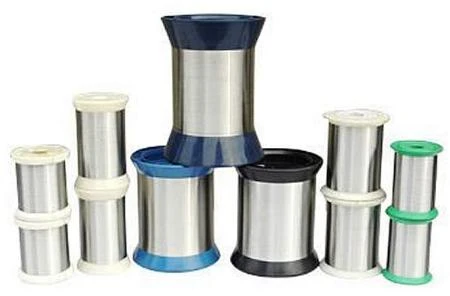 TEL:
+86-13102802206
TEL:
+86-13102802206
 Email:
fencenetting@china.com
Email:
fencenetting@china.com
 Language
Language
 TEL:
+86-13102802206
TEL:
+86-13102802206
 Email:
fencenetting@china.com
Email:
fencenetting@china.com
 Language
Language


Understanding SS Tie Wire A Comprehensive Guide
In the realm of construction and fabrication, the importance of materials cannot be overstated. Among these materials, Stainless Steel (SS) Tie Wire stands out for its versatility and strength. This article delves into the characteristics, applications, and benefits of SS tie wire, providing insights into why it’s a preferred choice among builders and engineers alike.
What is SS Tie Wire?
SS Tie Wire is a type of wire made from stainless steel, a metal alloy known for its exceptional resistance to corrosion and rust. Stainless steel is composed primarily of iron, chromium, and sometimes nickel, which enhances its durability and strength. Tie wire, on the other hand, is primarily used for binding, fastening, and securing materials together during construction processes. SS Tie Wire is specifically manufactured to cater to heavier applications where standard tie wires may fall short in performance or longevity.
Characteristics of SS Tie Wire
1. Corrosion Resistance One of the primary attributes of stainless steel is its ability to resist rust and corrosion. This makes SS tie wire ideal for outdoor projects or areas with high humidity, ensuring that the wire maintains its integrity over time.
2. Strength and Durability SS Tie Wire is significantly stronger than regular steel wire and offers excellent tensile strength. This makes it suitable for various structural applications where strength is critical.
3. Flexibility Despite its strength, SS tie wire retains a degree of flexibility, allowing builders to twist and shape it as needed without breaking.
4. Temperature Resistance Stainless steel can withstand high temperatures, making SS tie wire a suitable choice for applications that may involve heat exposure.
5. Ease of Use SS tie wire is relatively easy to handle and can be cut, twisted, or molded into different shapes, making it adaptable to a variety of construction needs.
Applications of SS Tie Wire
SS Tie Wire has a wide range of applications in the construction and manufacturing industries, including

1. Reinforcement In concrete construction, SS tie wire is often used to hold reinforcing bars (rebar) in place. This ensures that the bars are securely positioned before pouring concrete, enhancing the overall strength of the structure.
2. Joinery and Fabrication SS tie wire can be used for connecting metal parts in fabrication. It provides a strong bond without the need for heavy duty tools, making it a common choice in workshops and assembly lines.
3. Horticulture and Gardening In gardening, SS tie wire can be used to support plants, bind trellises, or create supports for climbing plants. Its resilience against corrosion makes it suitable for outdoor use.
4. Electrical Wiring It is commonly employed in electrical installations for binding wires together, providing a neat and secure arrangement.
5. Fencing SS tie wire is also used in fencing applications, providing strength and longevity to fences that need to withstand environmental factors.
Benefits of Using SS Tie Wire
1. Cost-Effectiveness Although SS tie wire may have a higher upfront cost compared to non-stainless alternatives, its durability and low maintenance requirements make it a cost-effective solution in the long run.
2. Sustainability Stainless steel is recyclable, which makes SS tie wire a more sustainable option compared to traditional steel wires that may contribute to environmental degradation.
3. Maintenance-Free Due to its resistance to rust and corrosion, SS tie wire requires minimal maintenance, freeing up resources and reducing long-term labor costs.
4. Aesthetic Appeal The sleek, metallic finish of SS tie wire can also enhance the overall aesthetic of a project, making it a preferred choice for exposed applications.
Conclusion
In conclusion, SS Tie Wire is a crucial component in many construction and fabrication processes, owing to its strength, durability, and resistance to corrosion. Whether used in concrete reinforcement, gardening, or electrical applications, its versatility makes it an indispensable choice for builders and manufacturers. By understanding its characteristics and applications, one can make informed decisions about incorporating SS tie wire into various projects, ensuring a durable and efficient outcome.